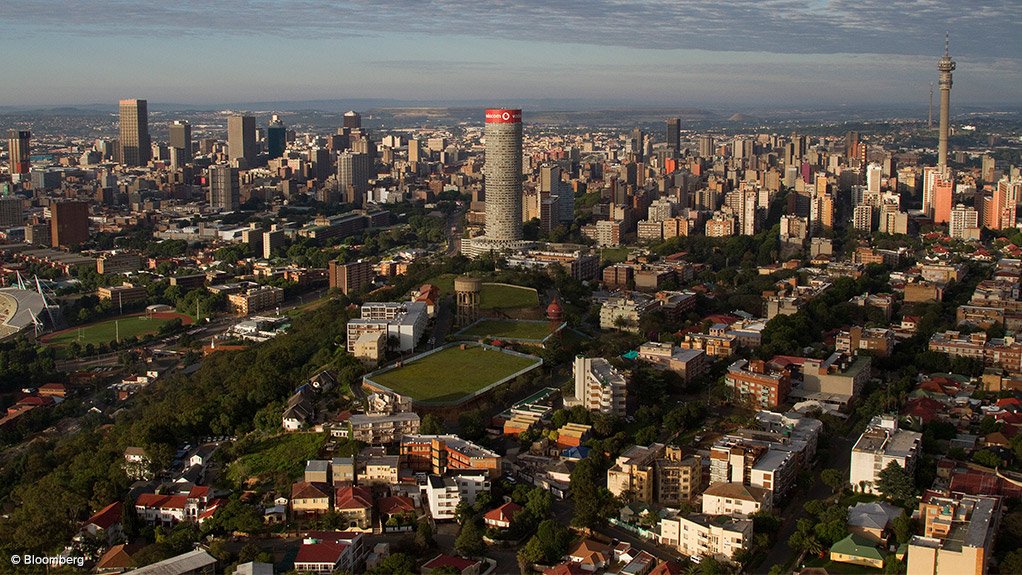Cities must have greater autonomy and a greater level of accountability and responsibility for economic growth on a national level, business think tank Accelerate Cape Town CEO Chris Whelan said on Wednesday.
Speaking during a panel discussion at an Africa Frontiers Forum hosted by advisory firm Frontier Advisory, in Sandton, he said cities could not be separated from the national economy.
“We need to recognise the relationship between national and local and how we use local [developments] to drive national [growth],” Whelan said, adding that this also had to be done within the global economic context.
He noted that, in South Africa, cities such as Cape Town, Johannesburg and Durban were the economic drivers of the economy and it was there where value had to be created.
However, at a national level, economic development seemed to be more focused on distributing value and “making sure that the entire country gets everything equally”, Whelan said.
“There seems to be a battle raging between people that create value and those that distribute value, and if that battle is won by the redistributors, we will all lose”, he stated, adding that this was a poor way of growing an economy.
Whelan pointed out that in China, for example, the economic growth over the last 30 years mostly revolved around the city of Hong Kong and, yet, in South Africa the focus was not on cities and what they could offer but rather on making everyone equal.
“And that does not make sense,” he said.
Whelan further stated that the conversation around cities and their role in economic growth was too important to be left to politicians alone.
“It needs to be a conversation between business, government and civil society,” he said.
INTERNATIONAL INVESTMENT
Also speaking at the forum, advisory firm Deloitte risk advisory associate director Denise Lee said one of the most significant challenges Africa and South Africa faced was leveraging significant investment by multinationals to springboard the continent into a decade or even a century of growth.
Panel chairperson Frontier Advisory director and research and strategy head Hannah Edinger posed to the panel the question of whether South Africa had in fact missed some of these opportunities and was losing out on investment, as global investors were bypassing South Africa to invest north of its borders.
Lee stated that she definitely believed this to be the case.
“We have lost out on a lot of, specifically mining, opportunities to Mozambique and Brazil,” she stated, adding that South Africa’s major cities had also over the past years started to lose their competitive advantage over other African cities.
Meanwhile, Whelan said he believed a lack of certainty for investors could perhaps be one of the reasons why international investors would possibly bypass South Africa.
“For example, if you look at the issue of black economic empowerment in South Africa, no one objects to it, but when things change all the time, that is problematic,” Whelan explained, stating that investments were often long term, which meant that certainty was of great importance.
He further stated that the investor climate created on a national level was problematic, noting that companies could not go straight to cities for clarification or assistance as cities did not have a level of autonomy.
“Companies are limited by what the national framework is – and the national framework is vaguely schizophrenic, where [the country] wants international capital but is not sure whether it wants the business. I am not sure whether this is useful to growing the economy [as this] limits cities abilities to attract talent and drive growth,” Whelan stated.
Meanwhile, Housing Development Agency CEO Taffy Adler said if growth figures, such as gross domestic product, were considered on a 20-year comparison, South Africa had improved.
“It is true that unemployment is high, but so is employment. The absolute number of people employed in this country has never been higher. Not to deny the country’s issues, but at the same time you have to understand what is happening in the underlying economy,” Adler said.
However, Whelan noted that while the country was certainly doing better than in 1994, it had to ask itself whether it was doing well enough.
“Coming off a zero-base, it is easy to do well, but is this as good as it gets?” he asked.
THE FUTURE
Moving forward, African and South African cities had to find ways to become more competitive, Lee said.
She pointed out that, for example, water would become an even more scarce resource in future and cities would have to find ways of making themselves more competitive with regard to using this finite resource.
“Another major resource that will be the differentiator from a competitiveness perspective is data. There is so much data being created and all of that is value. So we have to be able to tap into that value. If we don’t start harnessing it today we will be left behind,” Lee stated.
Further, the availability of electricity would also play a major role in Africa’s development in future, State-owned power utility Eskom integrated demand-side management senior manager John Thorby said.
He pointed out that, currently, South Africa produced just below 50% of Africa’s electricity, which could be problematic for the continent as economic growth was linked to energy growth.
“So, if we are going to take Africa forward, where are we going to find the energy to enable people to develop the continent’s economies?’” Thorby asked.
However, he did point out that many new innovations were being developed that consumed a lot less energy than was traditionally needed.
“The future solution lies in adopting such technologies rather than building huge new power stations,” Thorby said.
EMAIL THIS ARTICLE SAVE THIS ARTICLE
To subscribe email subscriptions@creamermedia.co.za or click here
To advertise email advertising@creamermedia.co.za or click here











